General Insurance Blogs, Articles & Updates by - Magma HDI
Have us call you
- RENEW YOUR POLICY
- BUY NEW POLICY

SUVs are the smart choice over sedans & hatchbacks in 2023!
Buying a car is often a challenging decision. One must decide between several car categories, brands, shapes and sizes, power, variants, and colour before making the final decision. Before determining the final vehicle, you must also consider your budget constraints, use, and available parking space.
Since you buy a car with a long-term perspective, choosing between buying an SUV (Sports utility vehicle), sedan, or hatchback is a big decision you must make wisely.
Out of the given variants, SUVs are gaining more demand in recent times. Let us see why SUVs are the smart choice over sedans and hatchbacks in 2023.
1. Spacious
SUVs are undoubtedly more spacious than most of the sedans and hatchbacks available. They offer more legroom and headroom for everyone, including passengers with a heavy or very tall build. SUVs provide a comfortable and spacious ride for the drivers with a good view of the road ahead because of their height. These vehicles also come with a huge boot space and enough storage options.
2. Off-roading
Rising incomes and higher spending capacity have sharply increased youngsters making frequent weekend trips and getaways. Gone are the days when we used to book train tickets for our pre-planned vacations. Taking your car for weekend holidays and short unplanned vacations is common these days.
This significant change in holiday mindset makes SUVs a smart choice over sedans and hatchbacks. They are perfect for off-roading and tough terrains.
3. Huge variety
The SUVs offer buyers a wide range of options, including interior and exterior features and transmission power. They provide customisable colour combinations, matching tyre rims, different grill and roof designs, etc. You can also buy a particular SUV model with a 5-seater or a 7-seater option depending on the seat configuration and model variant you are buying. Adding third-row seating can be convenient and advantageous for bigger families. High-end SUVs also come with huge sunroofs, which are missing in a sedan or a hatchback. This adds to their aesthetic appeal.
As far as transmission power is concerned, SUVs are clear winners. These SUVs are power-packed with big engines that provide a thrilling driving experience. Some of them come with 4x4 capability that can give you great control and power in rough terrains, especially during off-roading.
4. Lower fuel consumption at reasonable prices
Gone are the days when SUVs used to cost a bomb and were diesel-guzzlers. To tap the new-aged market for SUVs, car manufacturers have done their homework well and improved the fuel efficiency of present-day cars. Also, they have trimmed their pricing because of increasing demand, facilitating mass production and economies of scale. This has made the SUVs fairly priced in comparison to sedans and hatchbacks.
SUVs are the smart choice over sedans & hatchbacks in 2023. They offer a complete package of luxury, power, speed, fuel economy, and competitive pricing, making them a step ahead of the other car categories.
However, it is essential to remember that owning a car also comes with a responsibility to have a best car insurance in India. An active car insurance policy is mandatory by law. Also, it provides financial protection in the unfortunate event of an accident with your car, any damage to it, or even if it gets stolen. Always choose the best car insurance in India after doing adequate research.
Click HERE to buy the best car insurance in India.
Disclaimer: The information provided above is for illustrative purposes only. To get more details, please refer to policy wordings and prospectus before purchasing a policy.
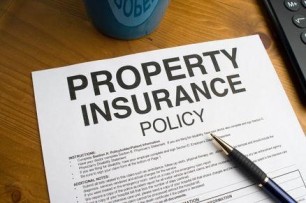
Let’s understand the different types of property insurance you can invest in based on your asset type
Building a property from scratch can be a time-taking and intimidating process. Whether commercial or private property, the construction cost can burn a hole in your pocket. This is precisely why property insurance becomes necessary to protect you, your family, and your assets from any unforeseen tragedies that might occur.
Property insurance provides cover for various misfortunes, including but not limited to fire, natural calamities, or robbery. However, choosing an insurance specific to your asset type is vital for the best coverage and benefits. This blog gives insight into the various types of property insurance available in the market based on your asset type.
1. Office insurance:
Office insurance is essential for all office premises, including public and private offices, call centres, etc. This insurance plan covers office owners against damages from unforeseen circumstances like fires, storms, lightning, hurricanes, cyclones, etc. This policy also covers other possible threats, such as the theft of office appliances.
2. Construction sites insurance:
Construction sites are places with a high probability of accidents. The misfortune of contractors is that the property remains their liability till the entire construction is completed and the property is handed over to someone. Whether it is due to bad weather or some water damage, it is a possibility that the building might collapse onto itself. It is essential to get construction site insurance to keep your assets secure against these occurrences.
3. Commercial insurance:
This insurance covers the policyholder from the losses incurred from destroying commercial properties such as warehouses, offices, factories, hotels, etc. Taking a suitable commercial insurance policy can be the best investment for business owners to safeguard themselves from the enormous losses faced by man-made or natural calamities.
4. Landlord insurance:
Landlord insurance is much like the homeowner’s insurance with one significant addition. The addition is the compensation of lost rental income, which is not covered by any other policy.
5. Renter’s insurance:
Tenants are usually in a dilemma regarding the safety of their belongings in rented accommodation. If their prized possessions are stolen, or there is some natural calamity that results in the tenant incurring losses, there is no way that the homeowner will pay for it.
So, the best option for tenants is to get insurance that covers all their belongings. Renter’s insurance is very similar to the homeowner insurance policy. One significant difference is, however, that this policy is exclusively meant to recover financial losses sustained by the policyholder if their belongings (can include clothes, jewellery, and appliances around the house) are damaged because of man-made or natural calamities.
6. Homeowners insurance:
Homeowners insurance or HOME INSURANCE is the most widely acquired type of property insurance. This is for a good reason. A home is a significant investment, and it is imperative to be secure against the various misfortunes that might befall it.
An appropriate home insurance covers all the financial losses the homeowner might incur in the event of any significant damage due to an accident or mishaps like burglary. Additionally, it also covers any possessions that have been destroyed in the mishap.
Our home is the greatest property asset, and safeguarding it from potential damages should be our primary objective. Having the most suitable home insurance is a surefire way of protecting from financial mishaps and adding the safety net of damage coverage.
Property insurance gives the property owner security and credibility, which is important for peace of mind and financial safety. Thoroughly researching the best insurance policy is essential to have the optimum coverage for your assets.
Click HERE to know more about home insurance.
Disclaimer: The information provided above is for illustrative purposes only. To get more details, please refer to policy wordings and prospectus before purchasing a policy.
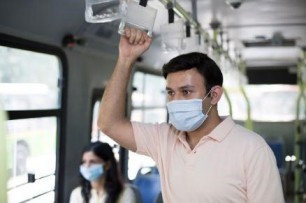
Why is public transport the best way to travel and explore places
Exploring the novelties and embarking on new adventures is what travelling is all about. From dingy roadside motels to premium five-star hotels, travel experiences make you more confident and better prepared for everything. To some people, it is a much-needed respite from the mundane routine of everyday life; for others, it is a way of life. Some people believe in setting aside a part of their earnings for annual family trips, while others earn to travel. Common among all these lifestyle choices is the desire to explore newness and the different versions of the planet.
There are multiple ways in which you can explore a city. You can accompany a tour group, walk around, and indulge in local life. But, in this article, we will discuss why public transport is the best way for you to enjoy your vacation.
1. Closer to the local life:
Cabs and rentals will ensure an easy commute, but if you want to indulge in the lifestyle of the locals, using public transport is a must. The locals frequently use public transport to carry out their day-to-day chores. Interacting with them will not only help you gain a better insight into the culture of the place, but it will also help you figure out where the untouched locations are. Many local restaurants and establishments are unexplored by the tourism industry. Local knowledge about these will help you explore the unexplored.
2. Cheaper:
People often complain about being scammed by taxi services and other car rentals. However, with public transport, you can avoid being scammed altogether. Since locals frequent this mode of transportation, they can't charge you extra. Some governments facilitate subsidised public transport rates, so the overall cost of your daily commute becomes considerably inexpensive.
3. Time to relax:
If you intend to book a car for yourself, be prepared to stress out about directions constantly. You might also be stuck in long traffic jams if you decide on exploring the city. Opt for public transport like trains to escape heavy traffic and the tiresome drive. During your commute, you can either look out of the window and enjoy the views or catch a nap before reaching your next location. This small break will help you be rejuvenated for the next part of your trip.
4. Personal health:
Public transport is a boon for you if you are a fitness enthusiast and cannot squeeze in the time for your workout in your jam-packed itinerary. Opting for public transport indicates that you will need to walk between stops, stations, or ports, depending upon the location and the type of transport. Not only does it prompt you to walk more, but it also helps you build an appetite so that you can eat more of the local cuisines guilt-free.
5. Responsible towards environment:
Public transport saves a considerable amount of fuel as compared to personal vehicles. The stark increase in carbon dioxide emissions has resulted in a rapid rise in global temperatures. Opting for public transport is a small contribution you can make to the environment and a better future.
These are a few reasons why public transport is the best option for you while travelling. Interact with the locals and explore the city's novelties while taking public transport. Remember that no trip is complete without travel insurance. Any risks you can incur during your vacation, including theft, financial losses, injuries, etc., will be taken care of by an insurance policy. To protect yourself and your family against such expenses, do not forget to buy insurance policy online. You can compare multiple policies, analyse their benefits and premiums, and choose from several online options.
Click HERE to buy insurance policy online.
Disclaimer: The information provided above is for illustrative purposes only. To get more details, please refer to policy wordings and prospectus before purchasing a policy.
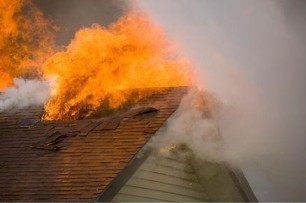
Invest in the fire and special perils policies for advanced protection of your property
Building a property from zero is a daunting process. It takes time, effort, and a high budget to construct your dream home or your dream office. Despite all this hard work, there are times when misfortune strikes unexpectedly. It can be a short circuit caused by lightning, a storm, flood, or cyclone that might drown your premises.
You won’t want your property to fall prey to such casualties. Despite taking all precautions and looking after safety measures, still, you cannot avoid the probability of mishaps. As rightly said, we must always pray for the best but prepare for the worst.
So, it is wise to be smartly insured against any such happenings. A policy that covers most misfortunes, either natural or man-made, is the Fire and Special Perils Policy.
What is the fire and special perils policy?
A fire and special perils policy is a contract where the insurer secures you and your property from any damages that may occur due to natural calamities such as storms, cyclones, and resulting floods, lightning, or man-made perils such as riots, strikes, or malicious damages.
Even though adversities like these may not strike you as something you should pay immediate attention to, it’s best to get insured before the situation gets out of hand. This will give you and your loved ones some much-needed peace of mind.
Key features of this policy:
This policy usually covers several contingencies, including
1. Fire hazard: Your property and possessions are insured if a fire breaks out.
2. Lightning: If any damage is caused by lightning impact
3. Explosion/Implosion: Your property is insured against an unforeseen explosion. If the building collapses inwards due to the failure of a system, that is also insured within this policy.
4. Human hazards like riots, strikes, and malicious damage: In case of these man-made hazards, your possessions are insured against visible physical damage.
5. Natural calamities: No one can accurately predict precisely when a natural disaster will occur. So, it gives great peace when your property is secured against these unforeseen calamities like storms, cyclones, typhoons, tempests, etc. This policy also insures you and your loved ones against floods, and landslides, including repairing your property.
6. Accidental mishaps: The repair charges are covered in the rare chance of accidental damages like the bursting of an automatic sprinkler installation.
7. Missile testing operations
8. Groundworks and other excavations
Some of the add-ons you can opt for in this policy are
1. Debris removal
2. Destruction in the event of a forest fire
3. Loss of rent
Features that are not covered:
Knowing the pros and cons of each policy before purchasing it is essential. There are a few instances where this insurance policy does not cover damage and loss to your property. These are
1. Destruction and damage caused by wars, being invaded by a foreign entity, civil war, rebellions, or in the case of military or usurped power
2. Nuclear war and allied risks
3. Pollution and contamination
4. Damages incurred due to volcanic eruptions or earthquakes
5. Damages incurred due to the loss of unclaimed precious stones or works of art
6. Acts of terrorism or militant activities
It takes a lifetime to build assets like property, so it doesn’t come as a surprise that one would want to get it insured against unforeseen misfortunes. The Fire and special perils policy are one of the most popular insurance policies chosen by homeowners, SME’s and big corporations alike. This holistic plan can protect you and your loved ones and also comes with a lot of flexibility.
You may even invest in the best HOME INSURANCE IN INDIA to protect the content of your home from incidents like theft or damage to the building. Investments that reap fruitful outcomes go a long way in safeguarding your dreams.
Click HERE to know more about the best home insurance in India.
Disclaimer: The information provided above is for illustrative purposes only. To get more details, please refer to policy wordings and prospectus before purchasing a policy.
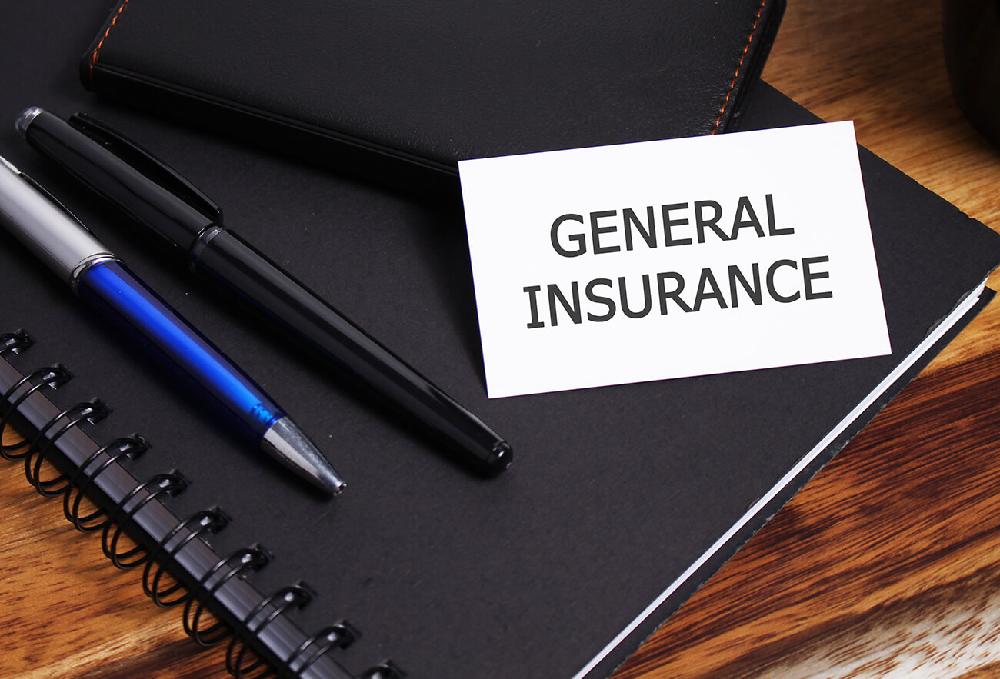
What are the different types of general insurance policies?
In modern times, uncertainty has become a part and parcel of life. You can take as many precautions as possible but certain unwanted situations can always take place. These situations can be related to your health, your life, or your possessions like car, mobile, house etc. Due to any man-made situations or natural disasters, you can suffer losses on various accounts. In such situations, an insurance policy is something that can reimburse you for the losses suffered to a great extent and reduce the monetary damage.
Although insurance policies cannot prevent the happening of any unfortunate incident, they can help minimize losses suffered due to such incidents. Irrespective of the fact whether you decide to Buy Insurance Policy Online or offline, having an active insurance policy is a must.
Insurance policies are available in various types and categories. The two main categories are life policies and non-life policies. The life policies are the ones that deal with ‘life’ of an individual. On the other hand, the non-life policies are the ones which deal with all other types of mishaps that can occur. These non-life policies are also called general insurance policies.
What are the different types of general insurance policies?
Following are the different types of general insurance policies that are available, whether you buy insurance policy online or offline: -
- Health insurance covers all the expenses related to a person’s health when he/she gets hospitalized due to problems like any illness or any accident. It also covers situations like an annual health checkup, daycare procedure, psychiatric support and other health-related situations. Specific extensions of these insurance policies cover critical illness, maternity-related situations and organ donation. The premium of a health insurance policy is based on the individual’s age, history of the health, any genetic disorders and other cases like that.
- Travel insurance losses suffered while travelling to domestic or international locations are covered by the travel insurance policy. Situations like loss of baggage or passport, hijacking, medical expenses and other travel-related situations that require settlement are covered. Any accidental deaths caused during the travel are also compensated by the insurance policy. Some insurance companies also allow the travel insurance policy to be free of any deductibles. In this situation, the company covers all the expenses.
- Motor insurance has further two types of policies that involve comprehensive and third-party policies. The third-party policy involves the settlement in situations that involve any damage caused to another vehicle or person by your vehicle. The accidental expenses caused by your vehicle are settled by the insurance company. Comprehensive policies also cover the damages caused to your vehicle. It is a policy which encompasses the features of third party policy in it.
- Marine insurance is useful in reimbursing of losses cause to goods that are being transported through cargo ships to national as well as international locations.
- Commercial insurance policies deal with the business-related insurances that involve loss of property, professional liability, marine damage and other such expenses.
- Home insurance the insurance covers the losses related to theft, fire, or other damages caused to your home.
- In case you are interested in buying a general policy, you can do so by contacting any insurance company, or you can even buy insurance policy online. The quotations will be provided to you in both online and offline cases. You can look at it and in case it suits you, you can purchase the respective insurance policy. You must make the premium payment on time to keep the policy active and enjoy its coverage. Any delay in the premium payment beyond the grace period would render the policy ineffective, exposing you to various liabilities and losses.

Why should we follow the traffic signals while driving vehicles?
Traffic rules are meant for your safety, and there should be no arguments against why you should ensure to follow traffic rules while driving or walking on roads. Traffic rules help protect you on the road as well as everyone else driving on the same road. People should know about the basic traffic signs and rules that should be followed while driving any vehicle on roads. People driving bigger vehicles need to be extra careful because of the multiple blind spots that are created by the big size of the vehicle.
Moreover, someone behind any bigger vehicle should also understand that there is limited visibility of the driver, and they should not try to come in the way of such vehicles which can be dangerous for both parties. Prevention is always better than cure but in case any mishappening occurs due to mistakes from either side, there are insurance providers who provide personal accident insurance as well. You can buy Personal Accident Insurance Online from any reputed insurance provider after properly comparing the benefits of all the different policies that are provided by different insurance providers.
Need for following road traffic rules
Government statistics show that more than 400 road accidents occur in India almost every day due to the negligence of the people driving and walking on roads. In many of these accidents, people get injured and in most of them, there are deaths of people involved also while some may escape unhurt. But, if traffic violations had not taken place and people were following the road traffic signs properly, there is a very high chance that the number of accidents will be very less than the current rate of 400 accidents per day.
Such traffic crashes and accidents also affect the Gross Domestic Product of the country, and the impact can be as high as 3% of the GDP. The traffic signs put on roads by the government for the people work to ensure that order ensues on the roads and signs are followed by the people on the roads. These traffic signs if followed properly will greatly help in reducing the accidents that occur daily on Indian roads.
Misconceptions amongst the people are aggravating the problem
There is a large population of India that do not follow traffic rules and is habitual of violating the rules, either due to no knowledge of the signs or even due to some misconceptions. There is a long time misconception in Indian public that it is not necessary to follow traffic signals after 10 PM and you see people racing past signals after 10 PM. This is completely false but people still following such myths is also the reason for many high-speed accidents occurring at night on city roads. People also do not follow one-way road rules and come with their vehicles on the road from either direction. They believe that reversing their vehicle on a one-way road is correct even if they are walking in the opposite direction, but this is completely wrong. You can reverse your vehicle on a one-way road, but you should be moving in the direction in which the road allows movement. These were examples of some common misconceptions among the people in India but there are more, and these myths lead to an increase in accidents on the roads.
It is necessary to train the people what different traffic signs and signals mean and what you should do when you see one of these signs. Campaigns should be undertaken by the government to train people on how to drive their vehicles properly on the road without causing a nuisance to others. Additionally, one must purchase personal accident insurance online or offline, as preferable, to get protection in case of such incidents.
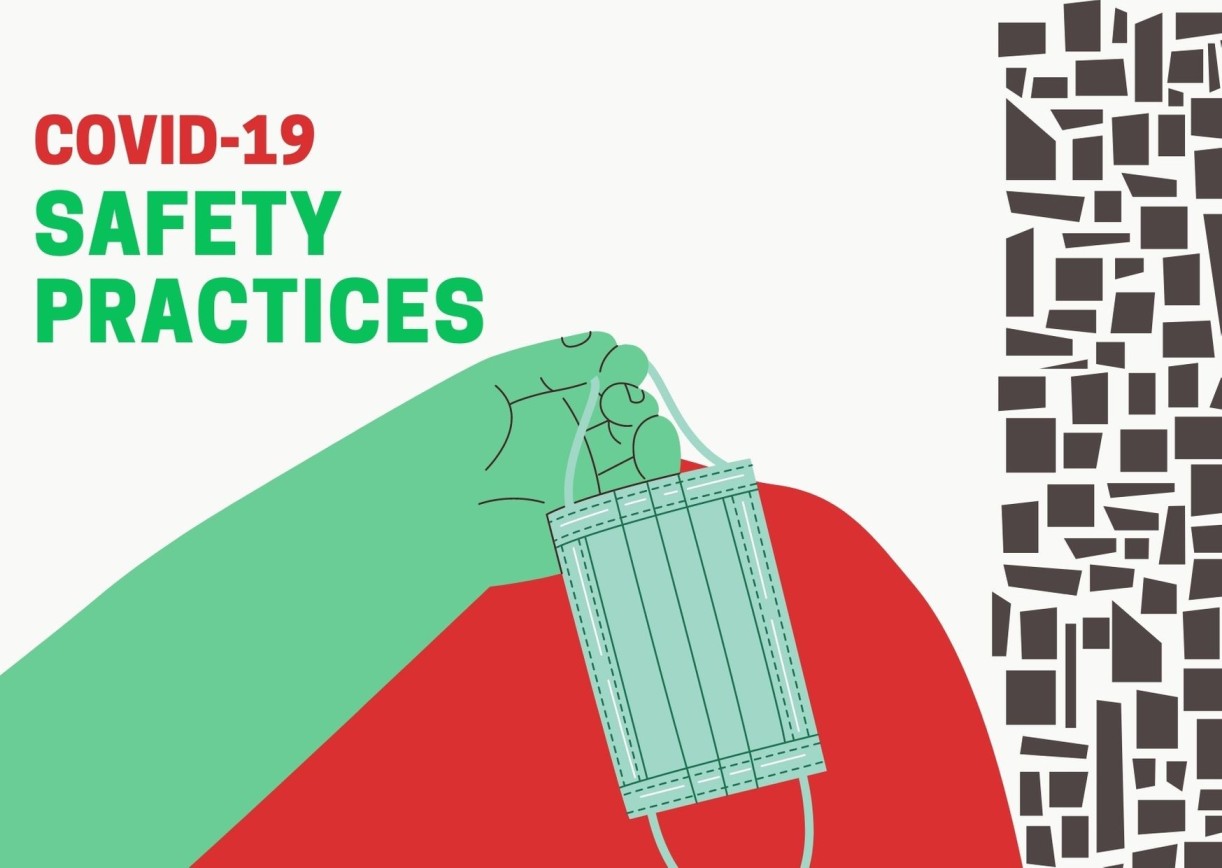
These 5 practices can help you stay protected from Covid-19
In these difficult and devastating times, we all want to keep ourselves protected from this deadly pandemic. The entire human race is praying to be safe and establish a Covid-free atmosphere in the world. But how can we make this happen? What measures can truly safeguard us from getting infected by this highly contagious disease?
1. MASK- A dependable shield
Wearing a proper mask should be our utmost priority whenever we move out of our houses or go to crowded places. Mask is the first wall of defence against the Coronavirus. The majority of the chances of getting infected are narrowed down if we wear appropriate masks suggested by our government and health authorities. But just wearing the masks is not sufficient; the mask should cover your face and nose properly. Only good quality masks should be used, cloth masks should be regularly washed, and use-and-throw masks should not be used more than twice. Masks should be handled only by using elastic strands. Avoid using masks that have filters installed on them, but use masks that are comfortable and easy to breathe. Remember, Mask ON....Life ON!
2. Maintain a safe distance today to have a safer tomorrow
Another crucial and effective preventive measure is maintaining a social distance of at least six feet when you are around other people. Avoiding close contact with people can nullify the chances of getting infected to larger extents. Even when you are at home, it is recommended to avoid getting close to the sick person or with low immunity, especially aged members of your house. Today this physical distance is a necessity to ensure the safety of you and also the people around you.
3. Safety is in your HANDS. Literally!
Our hands touch many things and surfaces daily, which means they are massively exposed to the virus. Later these hands can act as a carrier and can make our bodies vulnerable to the infection. So, we must wash our hands regularly and properly. Hands should be either washed by using soap and water or using hand sanitizers with a minimum of 70% alcohol. Especially when you are in a public place, carry a sanitizer with you always and use it whenever you touch an unknown surface. Avoid touching your nose, eyes, face, and mouth with unclean hands. Also, maintain personal hygiene and even keep your surroundings disinfected.
4. Vaccine is a must
Responsibly participate in the vaccination drive and get yourself vaccinated with both the doses of the vaccine. Also, encourage others to get themselves vaccinated. The vaccine is a game-changer during these challenging times, so be responsible and take the shot whenever available.
5. Your Health, Your Priority
In this depressing environment, it is wise to understand that staying positive can flush all the negativity and restore happiness. Every human is a superhero during these crucial times. Together we all can do wonders, follow these guidelines, and realize the importance of Covid appropriate behaviour and be a life saviour.
Lastly, in this extreme situation, closely monitor your health for any unexpected changes in your body. Never underestimate any symptoms, stay alert and consult your doctor in case you feel something odd. It is suggested to have an appropriate
health insurance
policy that acts as a rescuer for immediate cashless hospitalization and huge Covid related hospital expenses. You can buy Health Insurance Online in a contactless manner from a trusted source to ensure your health cover.
Let's make this difficult period a little lighter, both emotionally and mentally, and win this battle.

Getting the Covid vaccine? Here's what you need to know
Amidst this pandemic, the human race is praying desperately for the cure. After so many efforts, we are finally blessed to have a vaccine now. It is indeed significant that it could be made in such a short period; all credit to our advanced medical researchers.
Want to get the COVID-19 vaccine? Please check this step-wise procedure.
The first step to get vaccinated is to register yourself on the CoWin portal and get an appointment for the first dose of the vaccine. CoWin is a trusted platform designed by the government, which runs both independently and also on the Arogya Setu app. Avoid using any other portal or application for registering yourself as a lot of fraudulent portals are being run to fool people. Know exactly where the vaccine drives are rolling in your vicinity.
Also, it is important to know the difference between various doses, their side effects, and which one is suitable for you to take. Do this with the help of a physician or a doctor before taking your shot of vaccine.
Setting up your mind to get vaccinated without getting afraid is important. Vaccination is nothing but immunization!
What is to be done before getting vaccinated?
Register yourself on the government-suggested website and get an appointment for a particular day. As your day of vaccination is close, take adequate rest. Have enough sleep of 7-8 hours and avoid exhausting yourself. Also, if you are on some other medication or if you are on steroids or any immunosuppression, then consult your doctor.
For the safer side, if you feel any symptoms like cough, fever, cold, sore throat, etc. on or before the day of vaccination, then seek medical help. Consume a balanced diet to boost your immune system and to maintain your energy level. Stay hydrated, it is the key to stay calm inside out.
What to do when ‘it is the day’?
On the day of your shot, do a safety check. Ensure you are wearing a proper face mask and sanitize your hands properly. If possible, wear hand gloves too to maintain zero contact. Foremost, wear loose clothes when you are going to the vaccination centre because the vaccination spot is on the upper arm, giving easy access to the vaccinator.
The most important thing is to stay positive. Don't get anxious, take slow deep breaths. Think of a positive outcome – this shot is going to be a shield for you and others around you.
And, please carry your photo ID card mentioned in your appointment details for vaccination.
What are the steps taken after getting vaccinated?
The primary step is to monitor yourself. If there are any side effects, they will appear within 30 minutes after getting your vaccine shot. There are mild and common effects like swelling, redness on the arm, dizziness, headache, chills or mild fever, joint or muscle ache, etc. Remember that these side effects will subside within a few days.
If you feel severe symptoms like vomiting, fainting, allergic reactions, then seek medical help immediately. Avoid consuming painkillers or any other medication unless you consult a doctor about it.
The second dose is equally essential, so don't miss that. There should be a fair gap of 4-12 weeks between both the doses.
And most important of all is, even after getting vaccinated, don't stop taking precautions in day-to-day life. Continue wearing your masks, do sanitize properly and maintain social distancing.
Also, considering the risk pandemic brought, if you already don't have an existing health insurance, it is time to purchase a new
health insurance plan
.You can buy Health Insurance Online to get coverage to protect your family from sudden illnesses, hospitalization and medical expenses.
Let us be responsible, and let us all protect one another and help our community get through these pandemic hard times. Stay Safe, Get Vaccinated.

Tips for a homeowner facing a fire or smoke damage
Disasters have many faces and can strike anytime, anywhere; they can be seen in the form of quakes, floods, gas leaks, explosions, etc. and one of the most commonly known faces of disaster is fire. Damage felt after a partial or full-blown fire mishap is quite painful and nearly unrecoverable. However, if you have your house insured with ironclad insurance from a well-reputed fire insurance company, then your hassles can be reduced to a minimum.
A fire insurance policy plays an essential role in dealing with the losses and damages incurred due to fire. It is highly recommended to purchase fire insurance to safeguard your homes from any future calamity that a sudden fire or smoke can cause.
Here are some of the tips you can follow if you face damage from fire or smoke in your homes.
- Ask for an advance against your claim: - Right after the house has been gutted to fire, you might be forced to evacuate the house, considering the dangerous situation because of the smoke. In this case, you are eligible to get an advance from your insurance company so that you can buy your daily essentials. Inform your insurance company and ask it to issue a cheque and bring it to wherever you are staying. It will help you in this dire need and will be enough for your survival until your claim gets accepted.
- Checking for the extent of losses: - Once the fire tragedy is controlled, the first act of the homeowner is to calculate or check for the damage extent of personal belongings and property loss in the fire. Once the total loss is measured and counted, it will be easier for you to negotiate with officials handling the claim process.
- Having your receipts documented: - After facing a disastrous house fire, you may be forced to live in a temporary dwelling like a hotel or guesthouse close to your vicinity. It would be ideal to secure all the receipts, document all the costs and expenses carefully. Once you receive the claim for the house fire, you may also get a compensated amount you incurred on your living expenses.
- Check bank statements if you don’t have a receipt: - People tend to be careless when it comes to saving receipts for every new thing that they buy. While we might save receipts of the electronic items for warranty or claiming a refund, it’s not easy to keep those long bills every time you go for grocery shopping. However, your every online transaction would bring a huge relief; hence look for credit card statements and bank statements to prove the value of items.
- Back up your vocal claims with evidence: - After the fire tragedy, some items are destroyed or damaged to such an extent that for the insurer, it could be challenging to identify for assigning the claim. So, as a responsible party, you ought to click as many pictures and shoot videos as possible of the damaged, smoked rooms to show the physical evidence of the actual damage before it gets wiped by a restoration company.
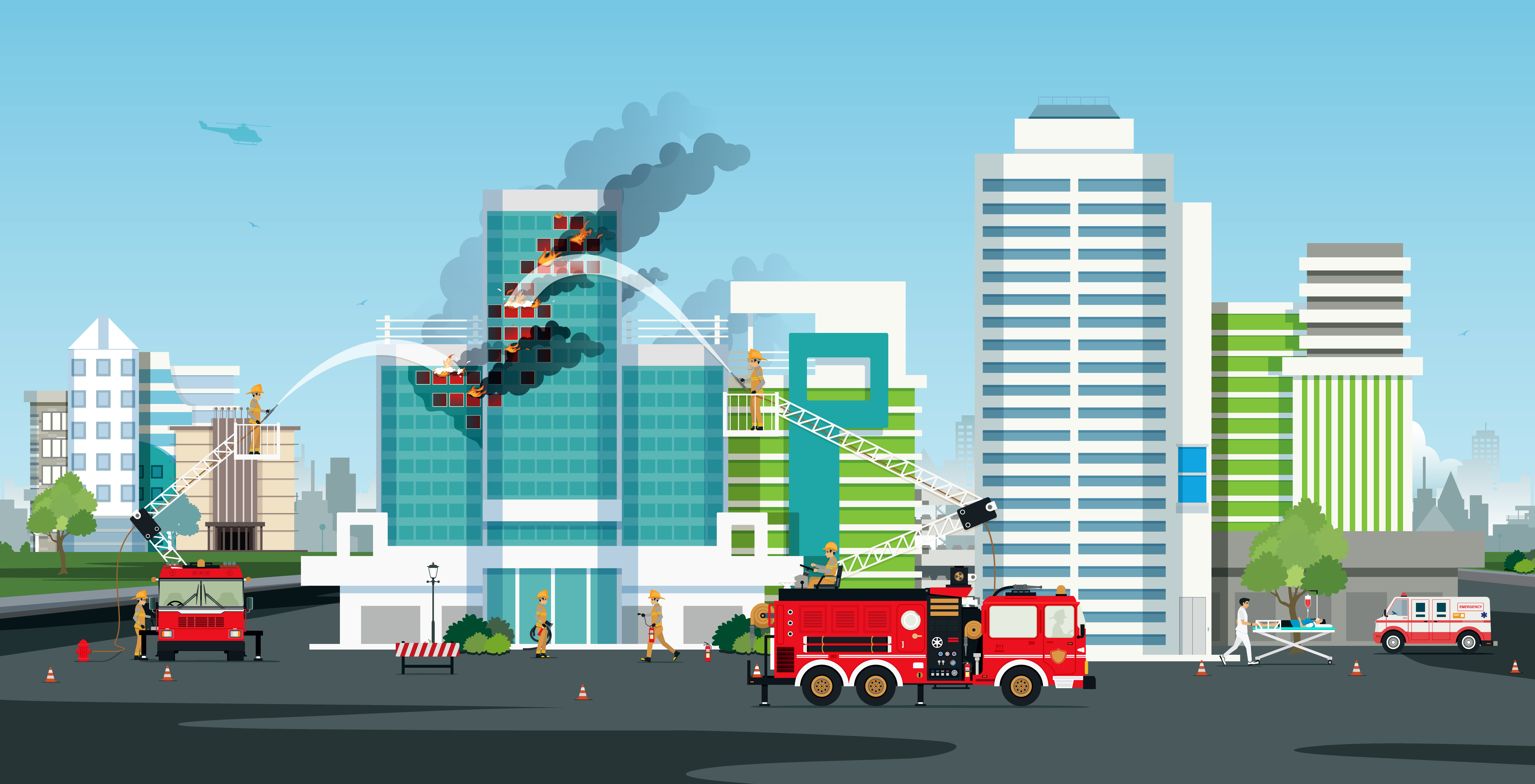
Quick Guide on Fire Insurance
Fire insurance is a contractual agreement between the policyholder and the insurer wherein the insurer in return for consideration or premium agrees to indemnify the policyholder or the insured person for the financial loss that he/she may suffer due to destruction of or damage to property or goods by fire during a specific period. You can buy as well as renew a fire insurance policy in India by online as well as offline ways.
The purchase of fire insurance helps to cover the cost of replacement, repair or reconstruction of the property, but fire insurance is generally not valid in case of war, nuclear risk or any such similar peril. Buying fire insurance is always a good idea because your property is your investment and buying a fire insurance policy will help you recover the damage and loss caused due to fire on your property.
Most of the policies offered by the different insurance providers cover the physical damage caused to your property by the following perils: -
- Fire
- Lightning
- Riot and Strike
- Earthquake, wind and storm
- Explosion
- Smoke damage
- Sprinkler Damage
- Damage due to aircraft
- Bush fire
- Subsidence, rockslides or landslides
- Impact damage which may occur due to the impact of road vehicles or animals or rails.
There are various types of fire insurance policies that are available in India, depending on the coverage requirement of the individual. The type of fire insurance policy in India you may choose also depends on whether the asset which is being insured is a fixed asset or a non-fixed asset. Depending on the type of asset being insured, insurance providers have different types of fire insurance policies available. The types of policies for fixed assets such as homes are: -
- Replacement Value Policy - The asset which has been insured is replaced if it is damaged by fire wherein the insurance company pays the replacement value of the damaged property.
- Reinstatement Value Policy - This is almost similar to the Replacement Value Policy but with an added clause that the insurance company will replace the damaged property to its original condition before the occurrence of the peril. This policy applies to fixed assets like buildings.
There are many different types of policies for non-fixed assets, such as: -
- Specific Policy - This policy covers the loss up to a specific amount which is less than the real value of the property.
- Comprehensive Policy - Also called ‘All in One’ policy, this policy covers loss due to fire, theft, burglary as well as other third-party damages.
- Valued Policy - Under this policy, the insured person can recover a fixed amount which was agreed to at the time the policy was bought.
- Floating Policy - This policy covers loss due to fire to property belonging to the same person but at different places.
- Valuable Policy - The sum insured is not decided at the time of buying the policy but instead, the claim amount is calculated at the time of loss.
- Consequential Loss Policy - This policy covers the loss in profit caused due to disruption of the business by damage due to fire.
Buying a fire insurance policy for your house or your goods is always a good decision, but you must buy a policy which covers the risk that you face and understand the nature of the asset that you want to insure and then buy an insurance policy accordingly.
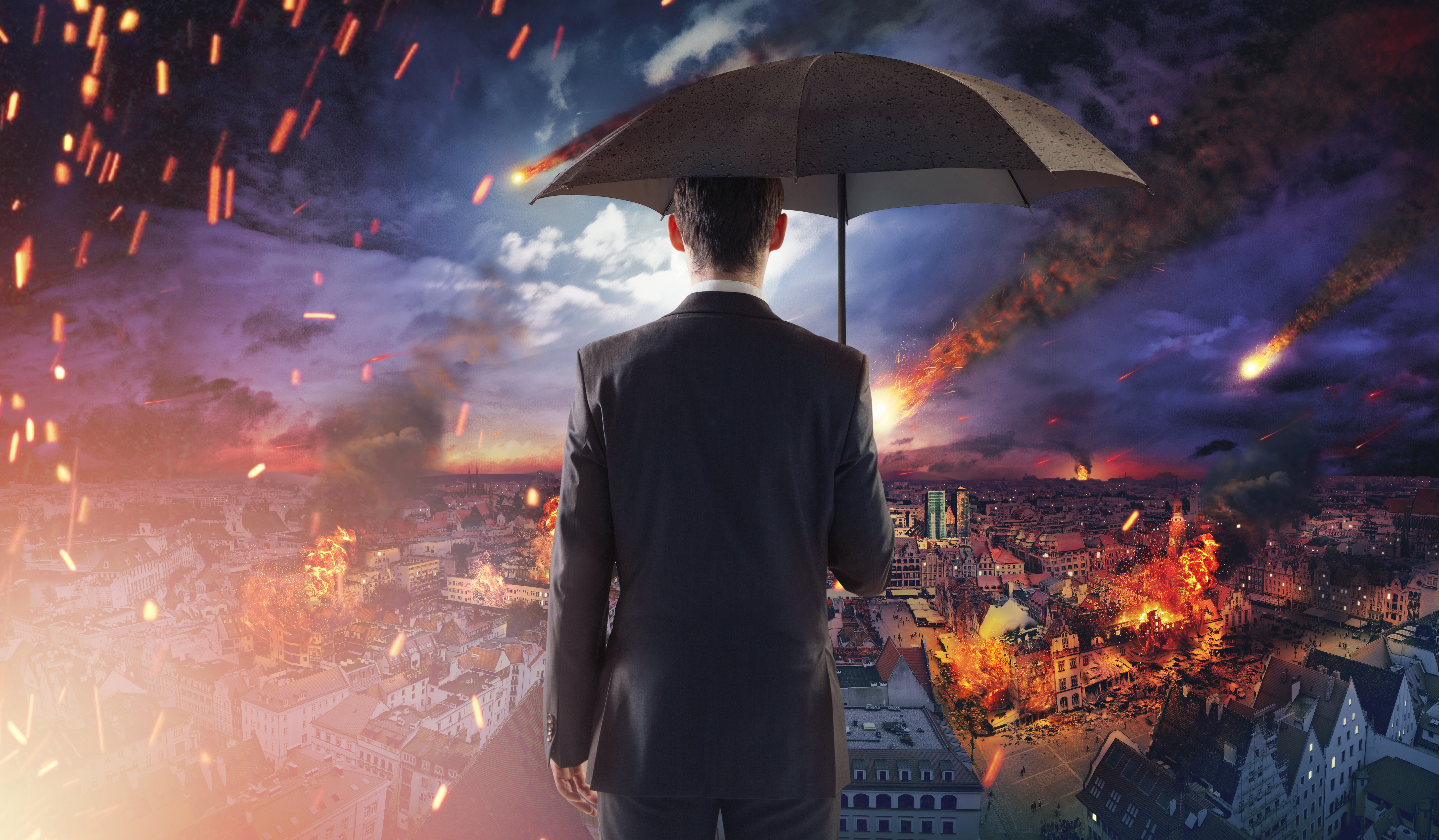
Quick Tips on Fire Insurance
Fire and related events can cause very big losses, and they have become one of the biggest causes of losses in recent times. The damage due to fire can include non-movable assets like homes and buildings as well as movable assets like goods. To ensure you are protected against any unforeseen damage of your property by fire or any fire-related event, you can buy fire insurance for your property from any of the fire insurance companies in India. Fire insurance involves many things and some things must be taken care of while buying fire insurance or renewing your insurance so that you need to pay a lesser premium as well as while filing claims so that you get the best deals.
Things covered under fire insurance: -
Fire, explosion and implosion Lightning Damage due to aircraft Strikes and riots Rockslides and landslides Impact damage Malicious damage Bush fire Smoke damage Storm, typhoon Sprinkler damage Earthquake
Things which fire insurance companies in India do not cover: -
Perils like war, civil war, invasion and similar events Rebellion or Martial law and similar events Underground fires and losses due to that Spontaneous Combustion Losses due to pollution or contamination Theft related losses occurring during or after the fire Consequential losses
What should be the policy amount of your fire insurance?
In most cases, the total sum for which you are buying the fire insurance should be equal to the total cost needed to rebuild or reinstate the property and the professional fees involved along with the charges for the removal of debris.
What is the difference between Replacement Value Policy and Reinstatement Value Policy for Fixed Assets?
In Replacement Value Policy, the insurance company pays the cost of replacing the complete asset that has been damaged or lost due to fire and related events whereas in case of a Reinstatement Value Policy; the insurance company pays the cost to replace the damaged property to its original condition it was in before the loss due to fire. While Replacement Value Policy can apply to other assets, the Reinstatement Value Policy is only applicable to buildings and no other assets.
When buying a fire insurance policy from fire insurance companies in India, you must consider the following things:
The type of risk that the policy covers and if the risk covered by the policy matches the risk you face for your property. The nature of the asset you want to insure because there are different types of policies available for fixed assets and many other different types of policies available for non-fixed assets. Understand the coverage duration of your policy and when to renew the policy.
What information you should get from the fire insurance company while buying the policy?
Premium Payable The insurance cancellation and refund policy Period of coverage Scope of policy coverage Non-standard exclusions Claims reporting procedures
What things are considered to calculate the premium?
The insurer uses many different kinds of data to come up with a final number which you need to pay as premium annually:
The type of policy The type of risk or risks covered The total sum insured The total value of the asset being insured How the asset being insured is used by the owner of the asset The expected risks that can damage the property being insured Whether the person has taken a policy extension or not
How to claim if your asset is damaged?
You need to immediately contact your insurer as soon as your insured property is damaged. The insurer may appoint an independent loss adjuster to take care of your claim, and you will be required to fill a form to start the claim process. The insurer will undertake proper investigation and will then accept the claim if everything is fine.
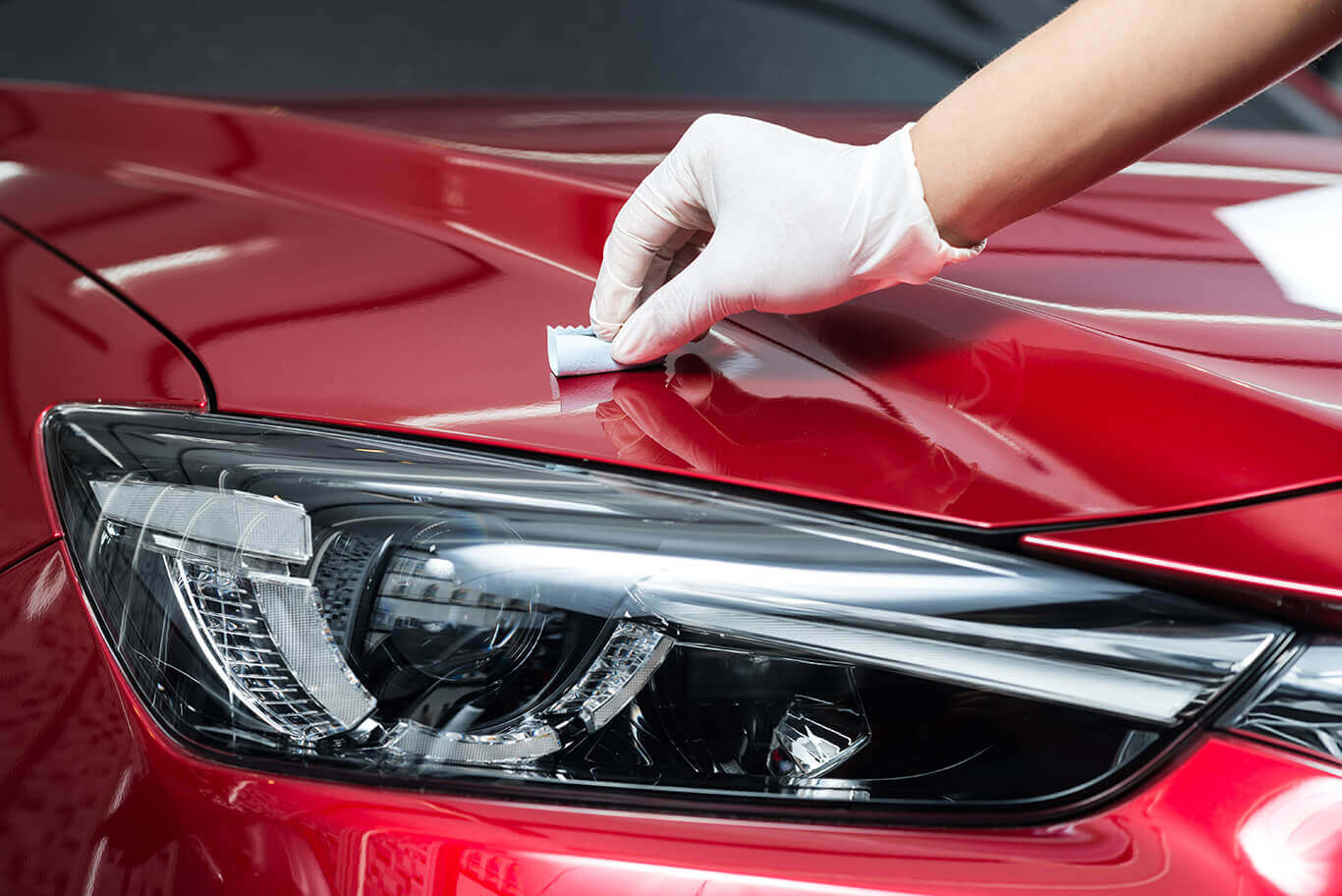
Keep your car in great shape!
Your car gets you safely everywhere you want to go, but it requires that you take good care of it in order for it to keep running. Some of these simple maintenance issues can actually result in an accident or injuries. Take the time to make sure these 10 things are checked regularly and maintained as needed and avoid a potential accident or claim.
Tip 1: Change the oil. Neglecting oil level checks and fresh oil changes will not do your car any favours.
Tip 2: Change the oil filter. Check the oil level once a month and replace the oil filter regularly.
Tip 3: Check your brake fluid. Check when transmission fluid and power steering fluid need to be replaced as well.
Tip 4: Check the tyre pressure each month. You should check your tyres regularly by ensuring that they are properly inflated and that the wheels are aligned. Not only will you get better mileage, but your tyres will last longer too.
Tip 5: Check the windscreen wipers. Make sure they are not damaged and are in a good working condition, as driving without proper visibility is dangerous.
Tip 6: Change the air filter. Keep your engine clean by regularly replacing the air filter.
Tip 7: Check the windscreen. Inspect the windscreen for small chips and scratches. These are reasonably cheap to repair, while replacing an entire windscreen is expensive.
Tip 8: Check your lights. This means indicator lights, hazard lights and headlights. Replace burnt out bulbs immediately.
Tip 9: Check the dashboard. Don't ignore the dashboard if there are flashing lights or the temperature gauge is suddenly extra hot. Stop as soon as it is safe and read the manual to make sure it is safe to drive further.
Tip 10: Protect the exterior of the car. A coat of good quality wax will ensure that your vehicle paint is protected. Apply the wax every six months.
Keep your car in good running condition and it will keep you safe and in control on the road. It takes a short amount of time to check these important functions, but can save money, fuel, and even lives in the long run. Make sure the functions of your car aren’t the only thing you’re checking. Get Car Insurance at the best price and protect your prized possession!

Get the peace of mind you deserve with one step
We all know that setting up a business and buying an asset takes a lot of time and toiling, it may be a car, your dream house or simply a household item.
For many, work and business is a doppelganger of their personal identity. Your office could have cash, valuables, goods and raw material, critical documents or intellectual property that in an event of a theft or burglary can leave you financially crippled.
Here’s what we have figured out through our truth lens!
Even though the crime rate in India is on the decline, it is still quite high at 379 crimes per lakh of the population as per data from NCRB (2016). Most urban business complexes now have better security systems and more personnel on board; however, most perpetrators in cases of thefts are known to be familiar faces. This makes it imperative for businesses to add a layer of security with a comprehensive burglary and theft insurance plan.
For the sake of insurance, theft and burglary are two separate categories, where burglary, unlike a theft, also accounts for forcible/ violent entry and/or armed robbery that puts the people, place and other valuables at risk.
Why is securing yourself against theft and burglary important?
A comprehensive protection plan can be purchased for your home, office, factory, warehouse, etc. The compensation from the insurer covers for any item that is stolen from the insured premises and also makes good any loss or damage caused to the premises on account of the said theft or burglary.
Any stock of goods, furniture, computers and electronics and other assets within the business premises are covered too. In fact Magma HDI’s Burglary Insurance Policy goes a step further and provides for reasonable coverage to clean up the premises and move any debris from the premises to the closest disposal site. It also reimburses for making good critical documents such as agreements and confidential business documents, on which sometimes the registration and stamp duty itself can run in to lakhs of rupees.
If you fear a repeated attempt at the theft or burglary, Magma HDI burglary policy also covers for the cost of temporary protection incurred for the safety of your employees and assets.
The first thing you need to do is to ensure that there are reasonable safety and security systems in place so as to minimize the risk. This will also have a direct impact on the insurance premium you will incur. The better your preparation, the lower the premium. The insurance will not cover for any loss arising out of an ‘inside job’ unless through forceful means.
Review your insurance requirements periodically, especially if you have different value of cash, goods/ raw material moving in and out of your office, new equipment/ machinery, critical R&D technology, etc. The value of your stocks and assets have a direct correlation to your premium.
The cost of insurance is a small price to pay for ensured business continuity, protecting your family and employees and securing your peace of mind.
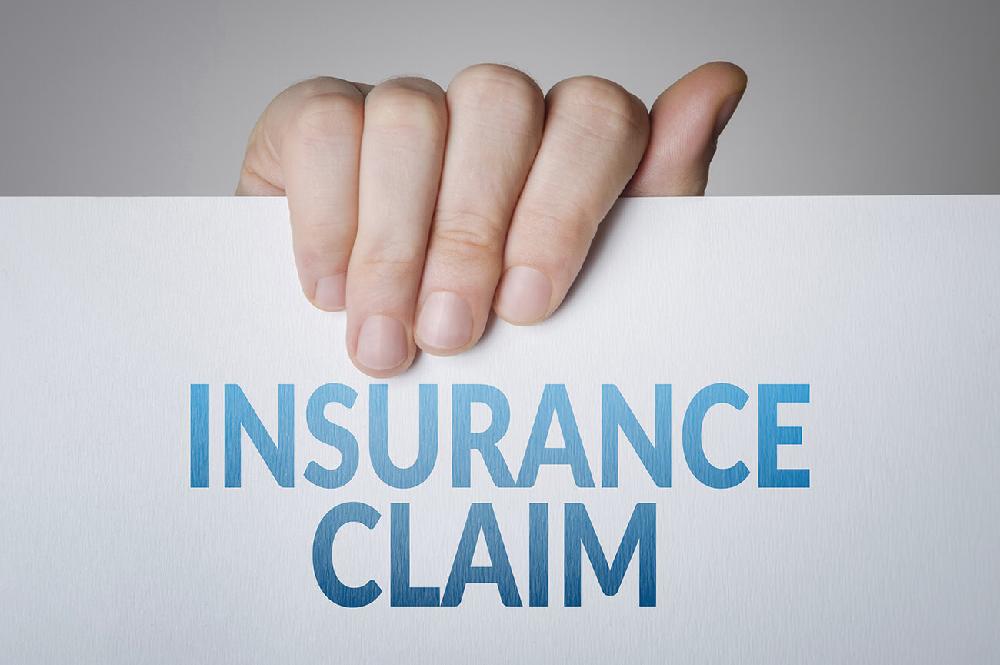
What is the claim settlement ratio?
Have you thought of your insurance claim getting rejected? Scary is’nt it?
Any individual taking an insurance policy would never think about their claim not being approved, but there have been numerous incidents of insurance claim rejection. Some of the reasons could be due to negligence on the part of the policyholder, but sometimes, it could also be because of choosing the wrong policy provider who looks for loopholes to avoid paying claims.
Claim settlement becomes especially important in the case of life insurance policy, where an entire family’s short-term sustenance may depend upon the claim amount.
What is Claim Settlement Ratio?
As the name suggests, the Claim Settlement Ratio is the number of claims the insurance provider has settled up until now. For instance, if the company has a claim settlement ratio of 80%, then that means that the particular company has settled 80 out of every 100 claims that were filed by policyholders.
Magma HDI has maintained an exceptional CSR of 94.1% in FY 17-18 compared to the industry average of 87.2%. With our convenient and efficient claim settlement process, we were able to ensure less than 30-day claim settlement for almost 87.17% of the total claims made in the year.
Why is the claim settlement ratio important?
It is essential to consider every aspect so you can take an informed decision before picking the right insurance provider and signing the policy papers. This becomes particularly important when taking life insurance, as, in the event of your untimely device, you will leave behind a financial security cushion for your dependents to fall back on.
The Claim Settlement Ratio is an indication of the likelihood of the policy provider to pay the claim. Companies that have a higher claim settlement ratio are automatically trusted higher as compared to companies with a lower ratio.
Few reasons for claim rejection:
- Withholding critical information at the time of taking the policy can seriously impact the likelihood of your claim getting settled as it affects the risk assessment – Can be written as tell the truth always! no matter what
- Not understanding or being unaware of the company’s terms and conditions could lead to complications or incorrect/incomplete information that could then lead to rejection. Therefore, make sure you understand the clauses and use the free-look period to ensure that you’ve made the right selection
- Faltering during the claim filing process is one of the key reasons for claim rejection. Therefore, you must thoroughly follow the process before filing your claim
Now that you know all about the Claim Settlement Ratio and how it impacts your chances of claim settlement, you can make an informed decision and choose the right provider.

How Magma HDI liability insurance makes you a responsible citizen?
It is hard to name a single businessman who hasn’t taken risks, but you will know many brave ones who trusted luck and risked everything. Truth be told, as a responsible business owner and citizen, one needs to be prepared with and Magma HDI Genaral Insurance Company offers a wide range of liability insurance policies that give you
1. Compensation for damage/loss of property or human injury
2. Covers your legal liabilities towards damage to any third party, along with the legal costs and expenses incurred by the insured.
3. It applies to both industrial and non-industrial establishments.
4. Compensation for damage/loss of property or a human injury caused due to defects in product manufacturing
5. Even after ensuring the highest quality standards and assessment parameters, a manufacturing defect in products is still possible and can cause mishaps.In such instances, Magma HDI Liability Insurance covers the liability to a third party.
6. Compensation for damage caused due to human negligence
Be it any professional– doctor, engineer or lawyer – involuntary errors and omissions could seriously impact their customers’ health, well-being, or financial stature. Liability insurance will take care of any liabilities that may arise due to negligence while executing your responsibilities.
Smart and trusted businesses quickly compensates loss or damage that might occur during the regular course of business as they are backed by their Liability Insurance policies and so can you CLICK HERE for buying Magma HDI’s liability insurance Policy.
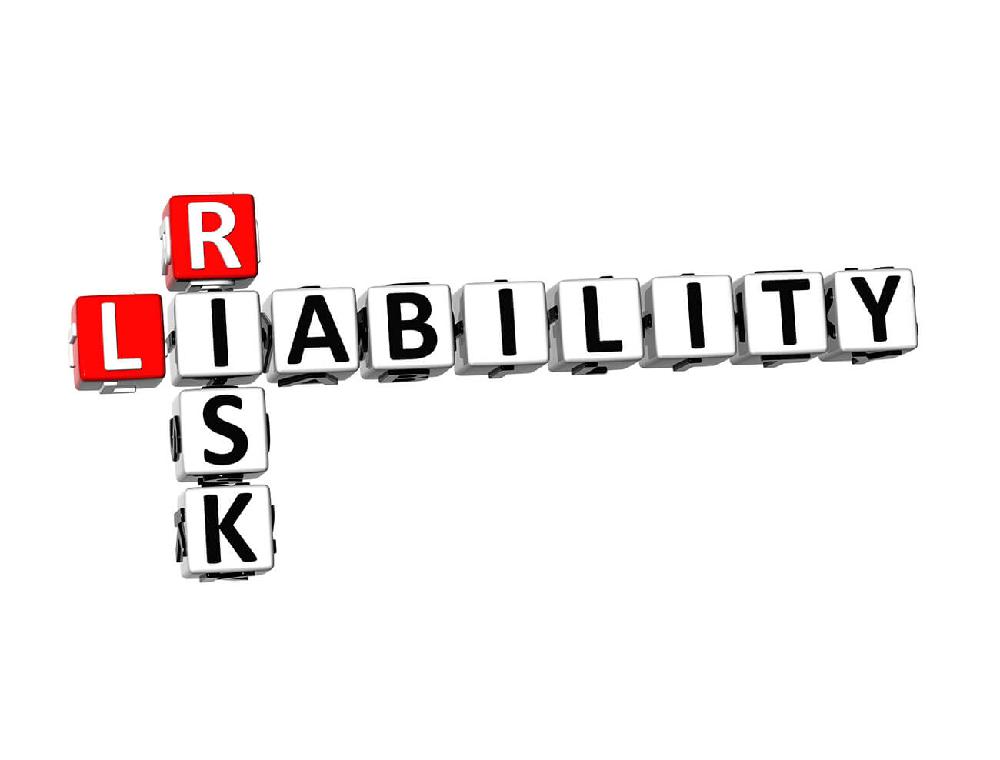
7 things you need to know about public liability insurance
Accidents happen. Sometimes due to negligence and sometimes due to sheer bad luck.
What if a customer slips and falls at your premise and breaks a bone? Or purchases an electrical device from you which causes a short circuit at their home resulting in a fire? In either of these incidents, as a business owner, you can be liable to compensate for the loss/damage to life, property and the legal fees a third party incurs.
An Example
A famous incident that highlights the need for public liability insurance is the 'hot coffee lawsuit' of 1992. The plaintiff, 79-year-old Ms Liebeck accidentally spilt hot coffee on her lap, (while in her car) purchased from a renowned fast-food retailers outlet. She spent eight days in the hospital because of third-degree burns, had to undergo a skin graft and two years of follow up treatment. Her attorney argued that the coffee served at 82-88 degrees was significantly hotter than what other outlets served (60 degrees) and was a burn hazard even if consumed immediately.
The jury initially awarded Ms Liebeck US$160,000 as compensation and coverage for medical expenses in addition to US$2.7 million in punitive damages. After a prolonged court battle and multiple appeals, the parties settled out-of-court in 1994 for an undisclosed amount, said to be under US$600,000.
Most businesses do not have the time, resources and deep pockets to weather such lawsuits.
Thus, every business needs to protect its interests and that's what a Public Liability Insurance can help them do. Here are six things you should know about Public Liability Insurance (PLI) in India:
1) Who needs it
Enterprises that regularly entertain the public such as restaurants, shops, educational institutes, sporting areas, etc. should get public liability insurance. It also applies to businesses that work in public spaces or private homes such as building contractors, electricians, etc.
2) Scope of coverage
The insurance covers the cost of damage/medical treatment and legal fees if any third party sues your business. This includes customers, vendors, and general members of the public excluding your staff (that comes under workers compensation).
3) Domicile of coverage
The coverage is not geographically restricted. It covers incidents at your premises or those at a customer/ clients location.
4) Cost
The cost of your PLI depends on the nature, size and scale of your business. Enterprises that deal with hazardous substances or have multiple outlets/ franchisees, etc. will have to pay more due to greater probability of a mishap.
5) Customizations
You can customize the coverage after assessing your needs. For example, a small café would probably need a considerably lower cover than a 5-star hotel complex. You may also choose add-ons for extra protection. For instance, the act of gods covers situations such as floods, lightning etc. which end up being frequent causes of dispute.
6) Legal Requirement
Even though businesses are not legally bound to opt for a PLI, certain lease agreements or trade associations make it binding on the lessee/partner to obtain the insurance. Many private parties too may not contract services to a business or tradesman without a PLI.
7) Exclusions
Like any other insurance policy, Public Liability Insurance In India is also subject to exclusions. Some common exclusions of insurance providers in India are- disputes related to pollution, slander, fines and penalties. Please refer to your plan's policy wordings for a better understanding of the same.
Many-a-times businesses fail to realize the damage to goodwill due to an incident is greater than the cost of financially alleviating the situation. To know how you can secure your business and do right by all stakeholders, have a look at what Magma HDI has to offer.
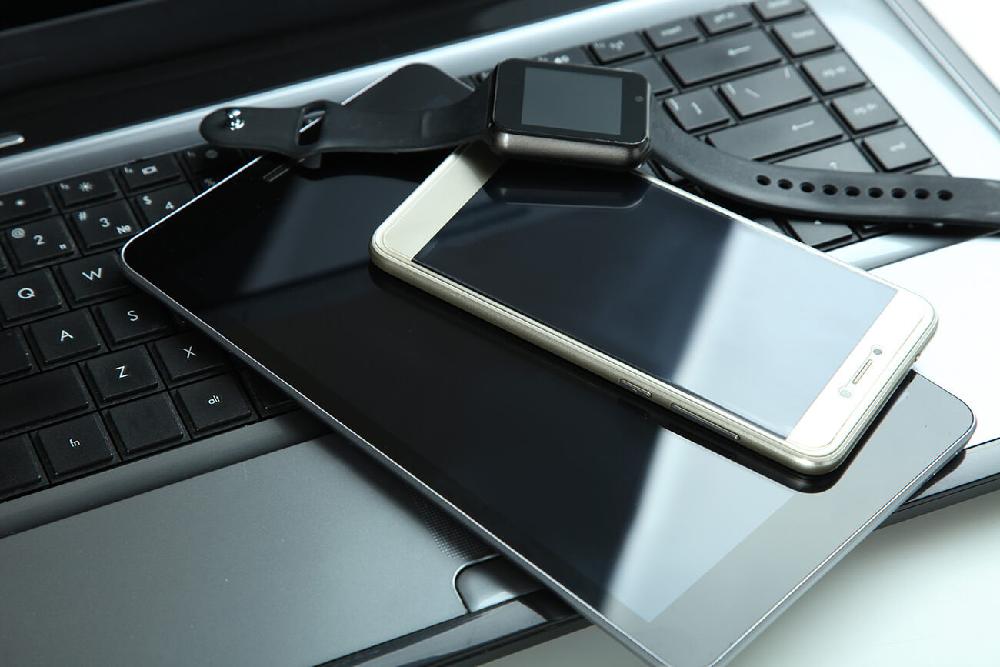
Did you know you could safeguard your precious gadgets/equipment with this one step?
Connectivity has become the fourth pillar of our rations today. Each one of us, at least, own three gadgets, in which we store and share critical data. Whether it is business-related information or personal details, our gadgets hold a lot of information that, if leaked, could cause serious damage. Besides the implications of a security breach, these gadgets come at a high cost, and replacing a lost or stolen one may seriously burn a hole in the pocket.
Therefore, it’s prudent to secure your gadgets by taking Electronic Equipment Insurance (EEI). EEI extensively covers loss of electronic good, and subsequently, helps to meet unavoidable costs. Depending on the coverage that will be best suited for you, there are different types of EEI to choose from. Before we get into the different types, let’s take a true look at the scope of the cover.
What’s Covered?
- Damaged equipment coverage, including replacement expenses, such as freight, installation cost, customs duty, etc.
- Damaged data media coverage, including expenses incurred in restoring lost information, external data media, damaged/lost data media, etc.
- Increased cost of working, caused due to employing more manpower to substitute for the work that would have otherwise been done by the equipment.
- Any damage caused to the equipment’s software as a result of the damage to the hardware is also factored in.
Types of Electronic Equipment Insurance
All risks included
Give your gadgets complete protection from perils, including those caused by natural and man-made causes. For instance, damage due to natural calamities includes the ones caused by fire, landslide, or storm, whereas manual perils include terrorism, strikes, and riots.
External data media
This option covers the losses partly and includes expenses arising due to data loss on external media devices, such as hard discs, etc.
Increased cost of working
This type of EEI is usually taken by organizations that rely heavily on data processing units. In the event of any loss or damage to the unit, the expenses incurred to employ any additional/alternative tool or manpower, are covered by the insurance policy.
What are the types of electronic equipment that can be secured with EEI by Magma HDI?
Electronic Equipment Insurance is suitable for a range of equipment, including, but not limited to:
- Computer and allied peripherals
- Audio visual equipment
- Auxiliary equipment, such as voltage stabilizer, UPS, etc.
- Electronic control panels
- Navigation equipment
- Telecommunications equipment
- Electronic equipment used for research and testing materials
- Medical equipment, such as MRI scan machines, X-Ray machine, ultrasound devices, etc.
Who should take an EEI by Magma HDI?
Practically, anyone who owns and operates electronic equipment should secure their gadgets with an EEI.
- Owners and businesses owning electronic equipment
- Organizations that are involved in leasing electronic equipment
- Third-parties, such as financiers or bankers who ultimately bear the purchase cost of the equipment
While an Electronic Equipment Insurance secures your gadgets from multiple threats, note that there are certain cases, such as normal wear and tear that do not fall under the purview of the policy.

Do I need marine insurance?
Insurance provides the safety net required to protect the financial integrity of your personal and professional needs. If you are in the business of sending or receiving physical goods from one destination to another, insuring your goods and business interests inevitably becomes your priority.
Therefore, the simple answer to whether or not you need marine insurance is 'yes'. Read along to understand why that is so:
What is marine insurance?
‘Marine’ insurance is a colloquially used term for any kind of transport insurance, not just restricted to waterways. Whether your cargo or goods are moving over land, railways, or a combination of multiple transport modes, marine insurance provides cover for any loss or damage to your goods while in transit from source to the point of delivery.
Marine insurance can be purchased by sellers, buyers, and even financiers of the goods. So, whether you’re a small trader, moving materials interstate or a manufacturer sourcing raw materials or a large import/export house, marine insurance can protect your stock against any unforeseen eventualities.
Why marine insurance?
Depending on the mode of transport, distance, size, and value, your cargo could take days or months to get from one point to another. In the interim period, your goods are at the risk of damage due to accidents, improper packaging/ storage, seepage of water, mishandling by personnel and natural disasters such as floods, fire, and storms. They could also be lost due to theft, piracy, or be lost at sea. The carrier, in most cases, cannot be held liable for any damage or loss either. Hence, it becomes imperative to opt for additional security.
All natural calamities and human errors can be covered by marine insurance. There are various types of policies such as valued, unvalued, floating, time, voyage, etc. that you can choose from basis your needs, irrespective of whether the cargo is moving for domestic trade or across international waters.
Magma HDI, for example, provides comprehensive coverage through its Marine Cargo Open Insurance Policy. Whether you are sending a small parcel via airmail or a huge consignment via cargo, Magma HDI has your peace of mind covered.
In some instances, taking marine insurance may be obligatory basis the terms of the shipping or business contract. This helps bring in clarity over service delivery and safeguards the interest of all parties.
Alternatively, the insurance helps you gain a lot more control over the jurisdiction and language if in case the need for a claim arises. Imagine dealing with an insurer based out of Japan speaking a language alien to you while you are trying to get the information and paperwork through. It can be both time-consuming and exasperating.
In conclusion, marine insurance is extremely pocket-friendly. The premium depends on the value of the goods and the mode of transport. For a fraction of the cost of the shipment, you can secure your peace of mind. In case the need for a claim arises, a dependable insurer like us is just a phone call away.
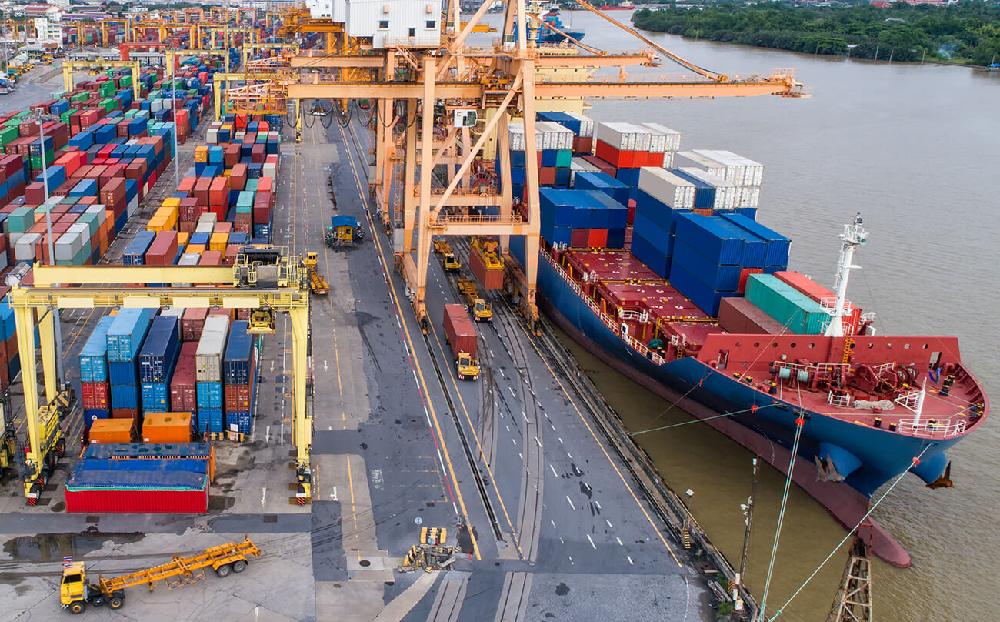
Events when your Marine Cargo insurance claim gets rejected
With the continuous rise in international trade, the volume of marine cargo is also increasing. Marine cargo has always been and will be an important component of international trade. With more and more businesses opting to transport their goods through marine cargo, the market is on the rise for shipping companies. This increase in business also increases the importance of having a comprehensive marine cargo insurance policy.
Irrespective of the fact how simple you might think a marine cargo insurance policy is, several claims get rejected every year due to one reason or another. You must, therefore, immediately take the necessary steps to ensure that your insurance claim does not meet the same fate.
Here is a list of the events when your marine cargo insurance claim can get rejected and how you can avoid them.
- 1. Insurance policy is not proper: - Not all marine cargo insurance policies cover for all types of damages. This is why you must have a comprehensive marine cargo insurance policy. If your policy does not cover the damage for which you have filed a claim, your claim will get rejected. Moreover, any changes in the constitution of your assignment or cargo might also lead to this rejection. You must, therefore, review for policy periodically and get it updated as and when required.
- 2. Mistakes in filing the claim: - Whether you have failed to file your claim within the requisite period or have filled the claim form incorrectly or have filed a claim under a wrong policy, the marine insurance companies will not hesitate in rejecting your application. Even, if they do not dismiss the claim outright, they might delay it for many days. Therefore, you must give this responsibility to an expert who has successfully filed such claims in the past.
- 3. Mishandling of goods: - If you have not packed the goods correctly or your personnel has been mishandling them, then the insurance claims filed thereon will be rejected by the insurer. You must, therefore, ensure proper packaging and careful handling of the goods on your vessel.
- 4. Perishable Goods: - Even if your insurance policy specifies that losses suffered due to delays will be compensated, it does not cover damages caused to goods of perishable nature. You must, therefore, check with your insurance company if such goods are covered under the policy or not, before accepting them.
- 5. Negligent Maintenance: - If you have not been paying attention to the maintenance of your vessel, marine insurance companies will certainly reject your claim. As your vessel will be plying in rough waters as well, so the chances of it suffering from damages are very high. These damages must be repaired as soon as possible to ensure the safety of the personnel as well as the cargo. You must, therefore, ensure that your vessel undergoes regular maintenance and follows safety and standard operating procedures. You should also keep a log of the repair and maintenance work carried out on the vessel, as it will help with your claim later on.
You must therefore carefully assess your needs, discuss them with your marine insurance company and only then subscribe to a comprehensive marine cargo insurance policy that caters to all your requirements.
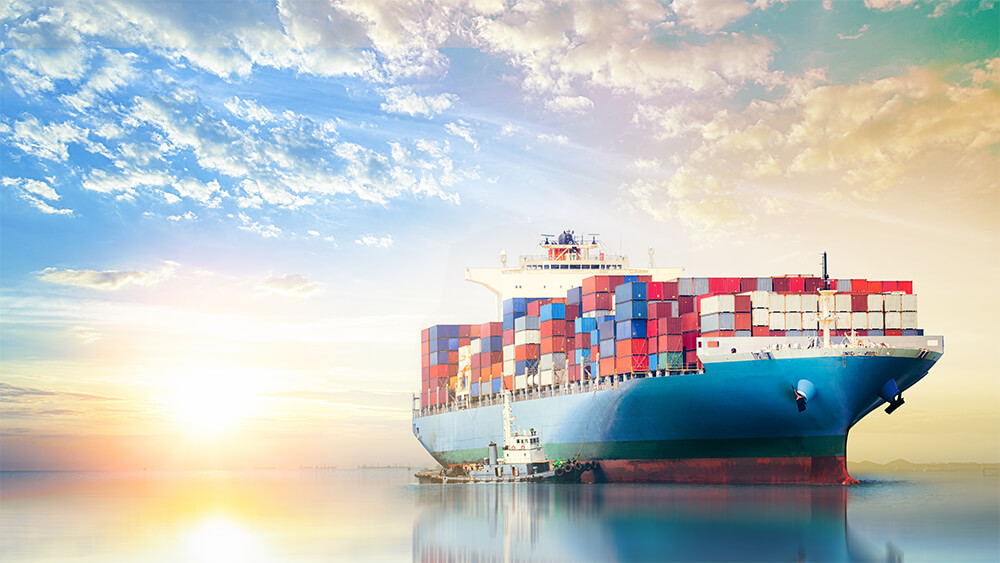
Hazards of shipping goods by the sea & how marine insurance can help
Ocean shipping is one of the most cost-effective means to ship out your goods to international borders. If a business acquires large bulks of orders from foreign customers wherein there are no quick delivery protocols, then shipping goods by the sea is the most viable option. However, there are some demerits attached to this practical advantage. Shipping goods via sea or ocean floor depends highly on factors like; weather, human-error, technical issues, and etc.
The hazards of not comprehending such factors might lead to disasters or accidents in the ocean, which further adds monumental loss to both business owners and the environment. This can be easily averted if you plan and get hold of proper marine insurance to combat the risks of shipping. Some of the better-known dangers related to sea shipping and how insurance can help tackle them includes;
- The occurrence of natural calamities - Perils never comes knocking on doors; they strike on decks without a single warning. Thunderous sea-storms, cyclones or tsunamis can destroy well set stocks and lives of those sailing on carrier ships. We cannot challenge the force of nature but what we can do is opt for marine insurance online to cover the losses, injuries, or damage caused during such natural disasters.
- Human Errors - There are certain dangers caused by man that could lead to a disastrous situation. Having untrained ship sailors or workers who load and unload goods with negligence and carelessness might create rooms for few accidents to occur in transit.
A reliable shield in the form of marine insurance to handle the mismanagement of shipping goods by workers would be a great help in such situations. - Geographical Hazards - Apart from natural distress signs, there are other forms of dangers present at sea in the name of geography. Try remembering Titanic, an unsinkable ship that sank nevertheless by hitting a massive iceberg. Big cargo ships going through narrow canals, icebergs, rocky shores or shallow coral reefs can get caught on sides or bottom, hence creating unimagined losses.
Mitigating such losses by having a rational marine insurance plan is one way, and another way is to have the ship properly tested for such hazards and assign a well trained, professional staff for commandeering the vessel. - Technological Issues - Such issues are more or less related to the ship's structure, engineering equipment, navigational tools, or motor engines. If the boat starts leaking oil in the ocean or one of the propellers is jammed due to long years of service, it could sustain significant damage to the goods on board.
To avoid such substantial financial losses; having a well-planned marine policy that can cover the ship's outer and inner structure after a thorough inspection is the right way to go.
Businesses work for profit and if your business requires delivering goods via sea or ocean, then why not keep yourself financially protected with a Marine Insurance cover and keep the profits intact.


